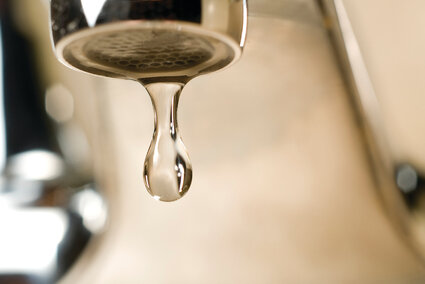Test, Tend, Treat
Groundwater Awareness Week looks at protecting earth's precious resource
March 13, 2024
When we turn on a faucet, we expect the water filling the glass to be safe; however, a 2022 Gallup Poll reports that 57% of American adults worry about safe drinking water.
Nebraskans are no different.
According to Laura Nagengast, UNL Extension educator, 85% of Nebraskans rely on groundwater for drinking water.
Since most of the state's groundwater comes from the Ogallala Aquifer, more people need to be aware of the role groundwater plays in their daily routines.
Amy Latzel, environmental health coordinator for the North Central District Health Department said National Ground Water Awareness Week "raises awareness in the community."
"Especially if they have private wells, to get the wells tested. If they have high rates, to test them on a regular basis," Latzel said.
The Nebraska Water Center reports more than 192,000 groundwater wells are registered across the state.
In July 2023, Nebraska Department of Environment and Energy report showed that the quality of Nebraska's drinking water remains high.
According to the report, 1.65 million Nebraskans get water from public systems protected from pollutants, like nitrates, because of legislation like the Safe Drinking Water Act.
But the SDWA does not protect the more than 300,000 Nebraskans who rely on a private well for water.
Latzel encourages private well owners to test water for nitrates. Kits are available at the NCDHD office. Well owners are able to request samples for nitrates, as well as other chemicals.
"You can get nitrates tested, coliform, eColi, pH, flouride, at all different prices," Latzel said.
Upper Elkhorn Natural Resources District provides a water quality monitoring system, checking irrigation wells in the district for nitrate-nitrogen and pesticides. They also provide nitrate testing for drinking water wells. Bottles to use for free testing are available at the UENRD office.
According to Latzel, private well owners should test water annually. She said more than 30 individuals signed up to have water tested at farm and home shows held recently in the area.
To test water, let the tap run for 10 minutes. Rinse a clean contained and lid three times before filling it with water to submit.
Once analyzed, water testing under 10 parts per million is safe to drink.
Samples testing more than 10 ppm are recommended for treatment. A reverse osmosis system is one recommendeation to filter nitrates.
During the 2023 legislative session, LB1014 passed. It approved allocating $4 million from American Rescue Plan Act funds to treat nitrate concerns. Of that amount, $1.2 million is dedicated to a RO rebate for private well owners.
"The general idea of the program is that any individual private drinking water well owner can test their water and if the nitrate concentration comes back above 10 ppm, they might be eligible for up to $4,000 support to get a reverse osmosis system to treat their nitrate," said Katie Pekarek, extension educator.
To qualify for the program, private wells must be registered. An applicant must submit water quality data from the Department of Health and Human Services Water Laboratory, with test results dated no later than Jan. 1, 2022.
Only wells with samples above 10 ppm are eligible.
Well owners will be required to provide a cost estimate from a licensed plumber who has completed at least five successful private well RO treatment installations.
Latzel said nitrates in groundwater have been linked to a number of health concerns.
Nitrates have been linked to a number of health concerns.
Health problems which may surface include:
• Birth defects. This may affect individuals who are or may become pregnant.
• Blue baby syndrome. This may affect infants under six months of age. Symptoms include blue skin, known as cyanosis; rapid heartbeat, shortness of breath, nausea, diarrhea, lethargy, loss of consciousness and seizures.
• Thyroid disease. An increased intake of nitrates from dietary sources has been shown to increase hypothyroidism.
• Colon cancer. According to the National Cancer Institute, nitrates have led to an increased risk of Colon cancer, especially those who have ingested water with nitrates.
"It's scary" Latzel said. "We're just seeing the effects of it."




Reader Comments(0)